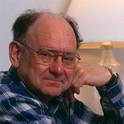
Professor Sarah Harper's assessment of the legal, political, medical, and economic issues associated with old age in the United States heralded the theme for this Symposium, "Aging America." Her analysis turns, as she puts it, on "a fundamental shift in the demographic structure of society. No longer will it be the norm to have large numbers of young and small numbers of old,"1 as it was when I was a boy (age 11 on V.J. Day, 1945).
"Rather, we are entering a world where age groups will be distributed more or less equally across society-an age-symmetric society."
2 Soon, America will have not three generations interacting and competing among themselves, butfive. Some people inheriting from their parents will be in their eighties when they get the money.
3 This symposium is obviously timely and important. And, I am happy to say, remarkably substantial as well. Ms. Jennifer Morris's astute assessment of the economic dimensions of the changes Professor Harper describes demonstrates that the burden of aging will fall-does fall-on older women, who live longer than men, have less retirement income, have lower savings and poorer health insurance than men, and incur greater medical expense than their younger sisters.
4 Professor Peggie Smith's discussion of the situation of those who care for the home-bound elderly shows that many of the women on whom the burden falls are not themselves elderly but are "workplace casualties" employed at low wages with poor benefits and crippling conditions as they care at home for aging America.
5 Much of the situation of the elderly and those who care for them, described in economic terms by many of our contributors, invites the wisdom of Kin Hubbard, writing as the fictional Hoosier philosopher Abe Martin, whose column once appeared on the front page of the Indianapolis Star. He said, "When a feller says 'It hain't the money, but the principle o'th'thing,' it's the money."
6 The Martin principle explains much of what concerns Ms. Morris and Professors Harper and Smith, as it seems to me to explain much of the concern expressed in the valuable articles in this Symposium by Stephen Moses, Professors Richard Kaplan, and Professor Lawrence Frolik (much, but perhaps not quite all.)
Available at: http://works.bepress.com/thomas_shaffer/264/

Reprinted with permission of Notre Dame Journal of Law, Ethics, and Public Policy.